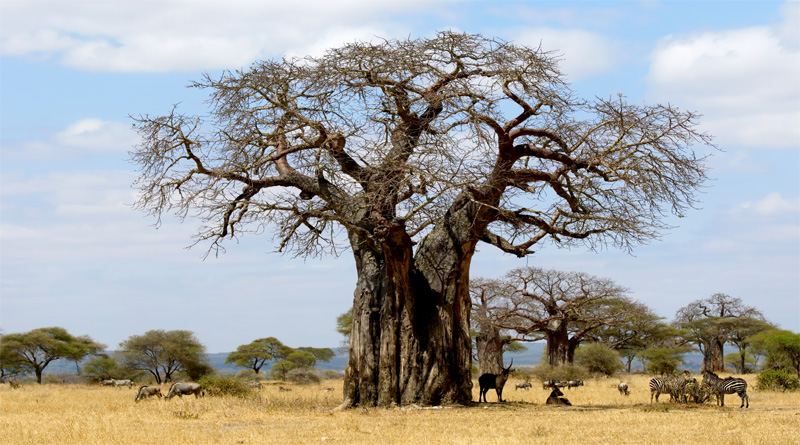1200 year old Baobab trees struggle to survive climate change

Baobab trees, those giant and fascinating trees found only in Africa, seem to be the latest victims of climate change. The oldest and biggest baobab trees said to be 1100 to 1200 years old in cases, have died off recently, in yet another signal that climate change has triggered of events we are still to even understand completely.
The Baobab trees, also known as “dead rat” trees, after the shape of their fruit, are said to have a lifespan extending over 2000 years. These trees are the most distinctive plants in the world, with up to seven giant trunks that can look like pillars (they start growing as a single trunk but over time develop others) and contain hollow centres.
Researchers at the paper Nature Plant that followed the trees over a decade, reported that since 2005, nine of the 13 oldest, and five of the six largest baobabs had either died or had their oldest parts collapse. These trees were located in Zimbabwe, Namibia, South Africa, Botswana and Zambia.
When they lose their leaves, the trees appear to be upside-down, with their branches resembling roots that extend upward. Given their age and their resilience to the often-harsh weather conditions in Africa, they have been the source of local stories and legends.
The study noticed that dead tree trunks only contained only 40%water instead of the normal 75-80%. It is believed that the recent episodes of droughts due to climate change have caused the trees to die out at an increasing rate. The lack of water meant the trunks could no longer support the trees weight.
The most notable death is of the Chapman baobab in central Botswana, where parts of the tree were said to be 1400 years old.
“The deaths of the majority of the oldest and largest African baobabs are an event of an unprecedented magnitude. These deaths were not caused by an epidemic and there has also been a rapid increase in the apparently natural deaths of many other mature baobabs. We suspect that the demise of monumental baobabs may be associated at least in part with significant modifications of climate conditions that affect southern Africa in particular. However, further research is necessary to support or refute this.” Wrote the authors of the report.
The death of these ancient trees brings forth the urgency of climate change, an issue where the world is still struggling to agree on binding agreements, hoping against hope for better sense to prevail. On the evidence so far, the Baobab’s won’t be the last victims of this stubborn foolishness to accept the reality.
Copyright:iamrenew.com




